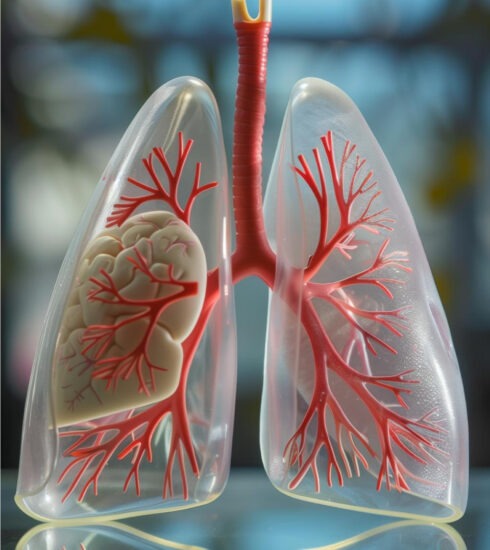- Dr. Sumita Saha

- April 30, 2024
Welcome to Motherhood: Your Guide to Newborn Care
Is breast milk good for my baby?
Breast milk is the best milk made for babies by god.
Breast milk contains the perfect proportion of nutrients that your baby needs, including protein, carbohydrates, fat & much more.
- It is easily digestible.
- It may protect against allergies & asthma in the future.
- It may decrease a baby’s risk of obesity in the future.
- It may contain some fatty acids that promote brain development.
- Breast-feeding can help new mothers lose weight more easily.
Breast-feeding: how much and how often?
Babies should be demand feeding after 1st 3-4 days (when there is enough supply of breast milk i.e., when feeding one side, the other side is leaking). That means, when babies cry – feed them. Babies should be fed on demand — whenever they seem hungry. Your baby may cue you by crying, putting fingers in his or her mouth, or making sucking noises. That could be 2,3,4 hourly. If the baby does not wake up for a feeding after 4 hours, then you should wake them up and offer a feed. You can be reassured that your baby is getting enough milk if he or she:
- Is steadily gaining weight
- Feeds at least six to eight times per day
- Is wetting diapers on a regular basis (passes urine at least 6-8 times per day at newborn stage.)
Your baby might not be eating enough if he or she doesn’t appear satisfied, even after feeding, and cries constantly or is irritable – call your doctor.
When to start breast-feeding :
A baby should be put on breast as soon as he/she is born & is crying vigorously. Offer breast within 1st hour of birth is best. Mom should keep lying down, while someone else holds the baby & let the baby suck from the breast.
For the first 1 or 2 days, milk secretion is very little in quantity and yellowish in color. This is known as colostrum. If the baby sucks well on the breast, then this amount of milk is enough for her. Initially she will probably demand it frequently, but very soon, you will find that enough milk will be secreted, & your baby will sleep well in between the feeds. The more the baby sucks on the breast, more milk will be secreted, as when the baby sucks, mother’s body gets the signal that milk is needed & therefore more milk will be produced.
Breast-feeding position:
Breast-feeding, one of the most natural acts in the world, takes practice. Learning how to hold & support your baby in a comfortable position is important & need to be learnt from nurses or elders in the family. Some time-tested positions to try are:
- Cradle
- Cross-cradle
- Football
- Side-lying
How often will a baby pass urine and stool?
In the first week of life baby may pass urine 6 to 8 times a day but after that the number of times increases & baby will be passing urine 15 to 20 times a day.
However, when one is using disposable nappies it is difficult to count the number of times baby passes urine. If you are not sure whether the baby is passing enough urine or not you may use cloth nappies to check.
As far as stool is concerned, the number of times the baby will pass stool varies a lot. A breastfed baby usually passes yellow semi-liquid stools. Usually in the first week of life the number of stools passing may be 5 to 10 a day or sometimes more. At times the baby will pass small amount of stool when he/she passes gas. Usually, the number of times that baby passes stool decreases as the baby grows. By 1 month to 2 months of age, baby may pass stool once a day or at times she may not pass stool for 3 to 5 days & after that she will pass large amount of soft-formed stool. This is normal & not constipation.
What should be the diet of a mother, who is breast-feeding her baby?
A mother who breast-feeds her baby should eat a well-balanced diet; which means she should be drinking plenty of milk or eating milk products, eating meat, beans & dals, vegetables & fruits. She should be taking more than what she takes normally.
Should she avoid certain food items? Does anything she eats cause “cold” or “gas” in the baby?
Unfortunately, even in today’s time, mothers are blamed for the colds or stomach pain that the baby gets. Mothers come to me with the guilt that they ate ice-cream or some other cold food item & probably because of that, their baby has caught a cold. If the mother has a cold and cough, baby may get this not through the milk but through the droplets when she coughs. Therefore, when she has cold & cough & she wants to prevent her baby getting the cold, she can wear a mask while handling the baby and wash her hands or use a hand sanitizer after touching her nose, so that the germs are not transferred via hands.
Burping your baby:
- Burping in babies is caused by trapped air in the stomach. As babies feed, they gulp air as well. The air takes space in the stomach so there is less room for the milk. The trapped air (also known as wind) has to be released – so burped out – to make space for the milk. Ineffective burping causes tummy pain, which is also called infant colic.
- Always burp your baby when feeding time is over, then keep him or her in an upright position for at least 10-15 minutes to avoid spitting up.
What is newborn jaundice?
- A common condition in newborns, jaundice refers to the yellow color of the skin & whites of the eyes caused by excess bilirubin in the blood. Bilirubin is produced by the normal breakdown of red blood cells.
- Physiological (normal) jaundice: occurring in most newborns, this mild jaundice is due to the immaturity of the baby’s liver, which leads to a slow processing of Bilirubin. It generally appears at 2 to 4 days of age and disappears by 1 to 2 weeks of age. If it is too high then they need phototherapy. The baby is placed under a special light which brings the jaundice down.
When to call your doctor or what are the danger signs of newborn babies?
Babies can get extremely sick very quickly as their body reserve is very less.
Following are some signs which needs immediate medical attention:
- Not feeding well
- Excessive drowsiness
- Excessive jaundice
- Bleeding from the umbilicus
- Too much watery stool, fever (more than 98.4)
- Hypothermia (baby appeared cold on touh)
- Extreme floppiness or jitters or convulsions (abnormal involuntary body movements)
- Rapid breathing or breathing difficulties etc.
Some normal behavior of babies where you should not get worried:
- Hiccup
- Sneezing
- Passing stool after feed
- Infrequent small amount vomiting after feed especially during burping
- 2-3 drops of blood in the female genital tract/vagina
- Small blanching reddish rash in body (erythema toxicam)









